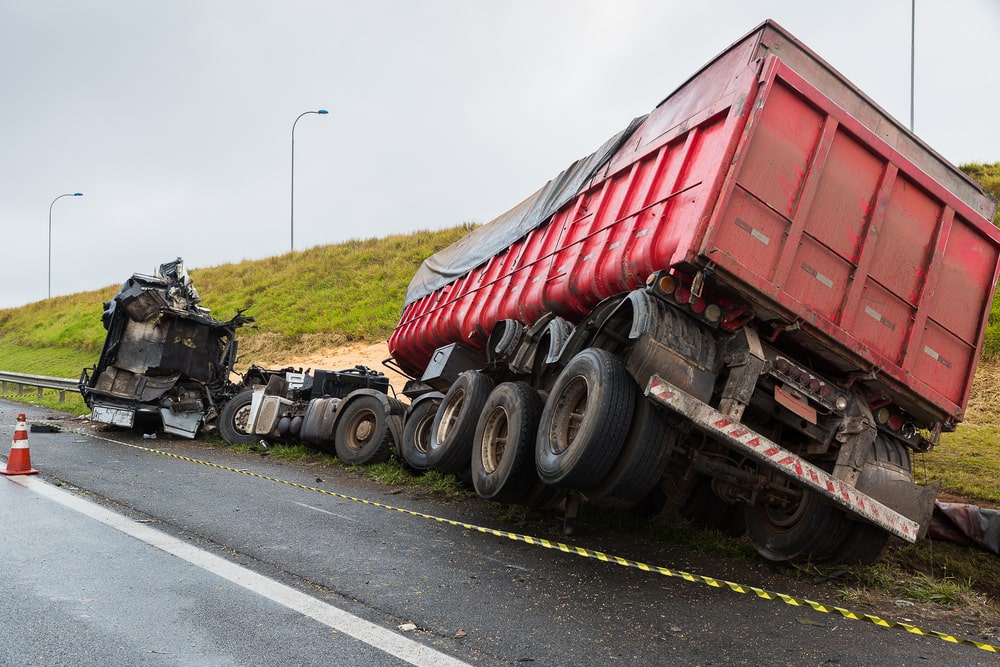Network Of Independent Truck Accident Attorneys
Louisiana Truck Accident Laws
100% Committed To Maximizing Your Recovery
Louisiana Truck Accident Laws

Truck accidents are a serious concern in Louisiana, given the high volume of commercial vehicles on our roadways. As a result, the state has specific regulations and laws that govern accidents involving large trucks. These laws are designed to protect both truck drivers and the general public, but they also create legal obligations that are important to understand if you’ve been involved in such an accident. At Truck Law, we are committed to helping you understand these laws and your rights in the event of a truck-related crash.
Liability In Truck Accidents
In Louisiana, truck accident cases can involve multiple parties who may be held liable for damages. This includes not just the truck driver, but also the trucking company, vehicle manufacturer, or even a third-party maintenance provider. Louisiana truck accident laws are clear on the responsibilities each party holds. For instance, trucking companies are often held accountable for their drivers’ actions under a legal doctrine known as “vicarious liability.” This means that if a truck driver causes an accident while performing job duties, the company may share responsibility.
Louisiana follows a comparative fault system, meaning that more than one party can share blame for an accident. Even if you are partially at fault for the incident, you may still be able to recover damages. However, your compensation will be reduced by the percentage of fault assigned to you. This system can be complex, as it involves determining the specific level of responsibility of each party involved, as well as state and federal laws.
State And Federal Regulations
Louisiana’s truck accident laws are designed to regulate the operation of commercial vehicles and ensure the safety of all road users. These laws are governed primarily by the Louisiana Department of Transportation and Development (DOTD), as outlined in the Louisiana Revised Statutes (RS) and the Louisiana Administrative Code, Title 73. Truck drivers, companies, and owners are required to adhere to stringent regulations concerning vehicle weight, size, and load limits to prevent accidents caused by excessive stress on infrastructure and unsafe driving conditions.
A key aspect of Louisiana’s truck laws is the weight limit for trucks, which is enforced to minimize wear on the state’s roads and bridges. The state uses a “bridge formula” to determine the maximum allowable weight of a vehicle, ensuring that trucks do not exceed safe limits. Violations of these weight limits can result in hefty fines and increased liability in the event of an accident.
In the event of a truck accident, Louisiana follows a comparative fault system. This means that if multiple parties are involved in an accident, fault is distributed among them based on their level of responsibility. Trucking companies may be held liable for accidents caused by driver negligence, equipment failure, or violations of load and safety regulations.
Truck accident victims may file personal injury lawsuits to recover damages such as medical costs, lost wages, and pain and suffering. However, because trucks are often subject to both state and federal regulations, these cases can become multi-faceted, requiring careful consideration of both Louisiana state law and federal trucking standards.
Truck drivers and their employers must comply with both Louisiana state laws and federal regulations. These rules, many of which are enforced by the Federal Motor Carrier Safety Administration (FMCSA), cover various aspects of truck operation, including driver qualifications, hours of service, and vehicle maintenance. Louisiana truck accident laws are designed to reflect these federal guidelines while incorporating additional state-specific requirements.
For more information on Louisiana’s motor vehicle laws, you can refer to Louisiana State Police Legal Information. Additionally, the FMCSA outlines federal regulations that govern truck operations, which you can access at Federal Motor Carrier Safety Administration Regulations.
The Importance Of Timely Legal Action
Time is of the essence when it comes to filing a truck accident lawsuit in Louisiana. The state’s statute of limitations sets a strict deadline for filing a personal injury claim, typically one year from the date of the accident. Failing to file within this timeframe may result in losing your right to seek compensation.
Gathering evidence after a truck accident is also crucial, as trucking companies may attempt to dispose of or alter key records such as driver logs, vehicle maintenance records, or GPS data. Louisiana truck accident laws permit legal action to preserve this evidence, making it important to act quickly to secure necessary documentation.
Compensation For Victims
Victims of truck accidents in Louisiana are often entitled to recover damages, which may include medical expenses, lost wages, pain and suffering, and property damage. These cases tend to involve substantial financial losses, especially when compared to car accidents, due to the size and weight of commercial trucks. Understanding the full scope of your damages is critical when seeking fair compensation.
In many cases, trucking companies carry large insurance policies due to the higher risks associated with commercial vehicles. This means that the potential for significant compensation exists, but it also means that insurance companies will likely fight hard to minimize the payout. That’s why it’s important to work with a law firm that is experienced in handling these types of cases.
If you’ve been involved in a truck accident, it’s crucial to understand your legal options. Louisiana truck accident laws are designed to protect victims, but the process can be challenging to navigate alone, without the proper guidance and understanding of both state and federal laws. At Truck Law, we’re here to guide you through every step and fight for the compensation you deserve. Contact us today for a consultation, and let us help you get the justice you’re entitled to under Louisiana law.